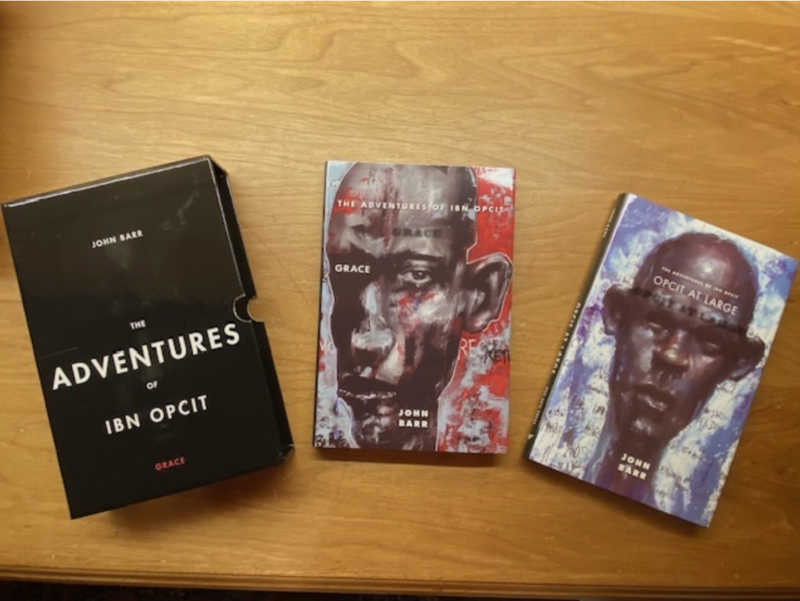How a poet writes poems: To repeat the phrase from Hemingway, it’s always the same and always different. In the fall of 1988, driving home from Vermont, I learned just how different. After 20 years of writing (or learning to write) poems in conventional lyric forms, an unknown voice in my head spoke a line of poetry — in a Caribbean patois. Having learned not to ask questions, I pulled my Jeep off the road and wrote it down. In the weeks following this voice continued to comment (rather relentlessly, on airplanes, in taxis, at two in the morning) on everything in my daily world. The accumulating lines produced poems:
O₂ O₂
Iron, he is steel, he good for the auto hood,
resisting crumple when the eye averted from the car ahead,
but iron, like a dog always ready to run off,
want to change and particle to rust. He yearn to be ore.
Copper no better. Try as he might he can’t hold
that salmon shine. Athwart the salad air,
lichen and liverspot, he grow green.
Except for Ibn’s elbow grease and his dissuadin’ Brasso,
copper nothin’ but a throatful of oxide.
De world full of lively elements.
Him water wear and roll, till a stream bed’s
boulders nothin’ but a bed of robin’s eggs.
Him water get a grip in a nevermind of gneiss —
the tiniest fissure — and watch him freeze and fracture
granite like a mouse skull in an owl’s claw.
Air, don’t mention it. Little methane, little argon,
and ozone — oh yes, O₃ dat necessary radical.
But in de midst of all dem jump-down, spin-around
heptagonals come de ransacker name of O₂,
de Great White lookin’ for de big score.
O₂ spider lover of metals
O₂ procuress for fire
O₂ de hunger in Quine d’Rodéo’s lungs.
Ibn Opcit, the poet/gardener, my persona or alter ego, went on speaking for several years and several thousand lines in my journals. When I set out to turn all this into a long poem or book, I again didn’t follow the rules. In “The Figure a Poem Makes” Frost admonishes “It is but a trick poem and no poem at all if the best of it was thought of first and saved for the last.” That’s true of writing a lyric poem but this would be a long narrative poem, and I would tell the story using lines from the journals written at other times for other occasions. The lines of the poem would be like the different colored stones used by an artisan to compose a mosaic on a chapel ceiling. In 1999 Grace was published as a book-length poem. Billy Collins called the mock epic “a momentous feat, a kind of funky Finnegan’s Wake in verse with palm trees.” In 2013 it was republished with a sequel, Opcit at Large, as The Adventures of Ibn Opcit.

